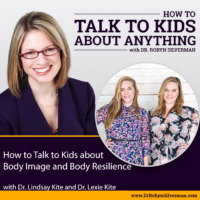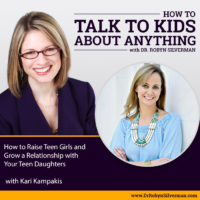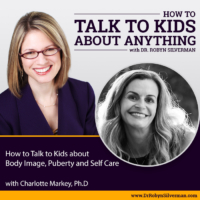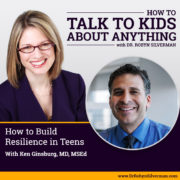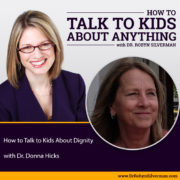Body Image and Girls: 8 Ways to Help Our Daughters Thrive in a Thin-is-in World
 It was 1996, my Freshman year of college, when I came face-to-face with a truth that still follows me today- one unifying concern that almost all girls and women seem to share is that they want to change something about their bodies. I still remember when it happened, as it came as a surprise to me. One of my friends asked me if my thighs touched. This gifted young woman, with big brown eyes, a sharp brain and warm heart worried that how close her thighs were to the other cancelled out her talents, intelligence and overall value.
It was 1996, my Freshman year of college, when I came face-to-face with a truth that still follows me today- one unifying concern that almost all girls and women seem to share is that they want to change something about their bodies. I still remember when it happened, as it came as a surprise to me. One of my friends asked me if my thighs touched. This gifted young woman, with big brown eyes, a sharp brain and warm heart worried that how close her thighs were to the other cancelled out her talents, intelligence and overall value.
It stuck with me. I spoke to countless other women and teens along the way who felt similarly. Despite the strengths they had to offer, they felt that “looks” were more important than their other attributes.
In graduate school, I studies body image. In fact, I wrote a qualifying paper and my 167-page dissertation on the topic. As it turns out, even research tells us that despite all that women and girls have to offer this world, 96% of girls and women want to change something about their bodies.
I completed my book, Good Girls Don’t Get Fat: How Weight Obsession is Messing Up Our Girls & How We Can Help Them Thrive Despite It, based on my dissertation work, in 2009 with my newborn baby girl, Tallie, strapped to my chest. The book was published in 2010. It’s 2018– and the issue is just as prevalent today as it was then. But of course, my own mothering love and worry for my now 9-year-old daughter and her beautiful friends, sheds a much more personal light to this prevalent problem.
So, how can we help our girls thrive?
- Change the discussion: This entails breaking some well-established habits. While it is absolutely fine to compliment a child on how they look some of the time, it can’t be our standard meet & greet. How many times have we heard; “You’re so cute!” “I love your dress, your hair, your eyes!” I’ve even heard a more extreme version of this on the beach with a mother who I was getting to know– “I wish I had a flat tummy like yours!” Instead, ask a girl about what interests her, what great book she’s reading or what activities she is passionate about or what subjects she likes to explore. Compliment her courage or character, rather than her appearance.
- Put high-beams on her strengths: Children learn, whether you speak about it or not, what is valued in this world. And while media or even the next-door neighbors may be highlighting thinness, your voice has power. What’s really awesome about your daughter? What do you think is remarkable about her friends, or interesting about her teachers or her grandmother? Instead of talking about who has the best clothes or the flattest stomach, purposefully discuss how you admire someone’s confidence, stick-to-itiveness or gift when working with little children.
- Ensure that your home is a safe haven: Think about it. Appearance-talk can filter through everyday discussions, holiday updates and meal times. All of a sudden dinner discussion like “how was your day” may evolve into “Have you lost weight?” or “Have you tried this new diet?” Politely ask guests to leave the fat talk at the door (they are welcome to pick it up on the way out), even if it’s your mother-in-law. Your home should be a “Fat-Talk Free Zone.”
- Help her to become media literate: Shows, movies, magazines and advertisements are filled with actors and models who are paid to look the way they do. Words, images and people are carefully crafted to get the intended audience to laugh or cry, search and click, bite and buy. Teach your daughter (and sons!) the tricks used to play with their emotions and get them to question if they are good enough as they are. What do they notice? Kids don’t like the wool to be pulled over their eyes- so becoming media savvy is a gift. (Listen to my podcast with Dina Alexander on this topic here)
- Ask the men and boys to speak up too: While body image is often slated as a “women’s issue,” we need to get everyone involved if the conversation is going to change. Encourage fathers, brothers, uncles and male friends to chime in as well as these voices can help a girl see that she has value beyond her looks. everyone needs to get involved. If a father-figure is wondering what to say, support him in challenging the depiction of women in the media, the messages about thinness in advertising and the appreciation of women for their minds and their tenacity. Voice your opinion about age-compression and what is being told to girls, younger and younger, about the need to look “sexy” and thin in order to be seen as valuable. This won’t happen by osmosis- have the discussion and state your values outright.
- Reveal the myths: Is it really true that body type can tell you about someone’s character? Of course not. However, research shows that the word “fat” has become associated with negative words such us ugly, lazy, blameworthy, unpopular and bad while the word “thin” is connected with positive words like beautiful, intelligent, disciplined and good. So “fat” and “thin” are no longer simply assessments of size or weight, but rather of character. Talk to your daughter about the many people in her life and how you know these myths are untrue and hurtful.
- Talk about what a body can do: We focus so much on what a body looks like that we often forgo talking about the amazing things our body can do. Our legs allow us to run and jump, stand tall, march and dance. Our arms allow us to hug the people we love. Perhaps your body gives you the ability to do the yoga or walk with a friend that makes you feel relaxed and grounded. Talk about how your bodies help you to engage in your favorite activities and how grateful you are to have the amazing body you do—what does her body allow her to do?
And finally;
- Be ready: Body image talks don’t often come when you are ready and waiting. My daughter, at age 6, turned to me when we were in the bathroom one day and asked; “do you think I’m beautiful?” I knew this was an important moment, so I took a breath and spoke from the heart:
Tallie: “Mommy; am I beautiful?”
Me: “Yes. When people are kind and full of character, it comes out their eyes and in what they do and it makes them beautiful. And people who are nasty all the time, even if they are pretty on the outside, are not beautiful.”
Tallie: It doesn’t matter what you look like on the outside. It’s the inside that counts.”
Me: “That’s right, Baby. People focus too much on what they look like on the outside and not enough on who they are on the inside.”
Tallie: “Yeah. Because it’s what’s in your heart that makes you beautiful.”
Me: “Yes, my Sweet. That’s exactly right. Are you learning about being beautiful on the inside at school?”
Tallie: “No, Mommy. I learned it from you.”
They are listening. Even when you think they are tuning you out, they hear you. Make your voice the one rings in their ears and becomes their inner mental script. These amazing girls need us to step up and say it plainly and often.
And please– even if you are reading this and thinking back to recent conversations where you said something or did something that sent a negative message about appearance, girls or women, let me assure you that there are plenty more moments to try again. In fact, you can try again today. As I say at the end of every podcast I do, parenting is the ultimate do-over. Thank goodness. We all make mistakes and we all have the opportunity to learn and try again. I, for one, am grateful for that!



